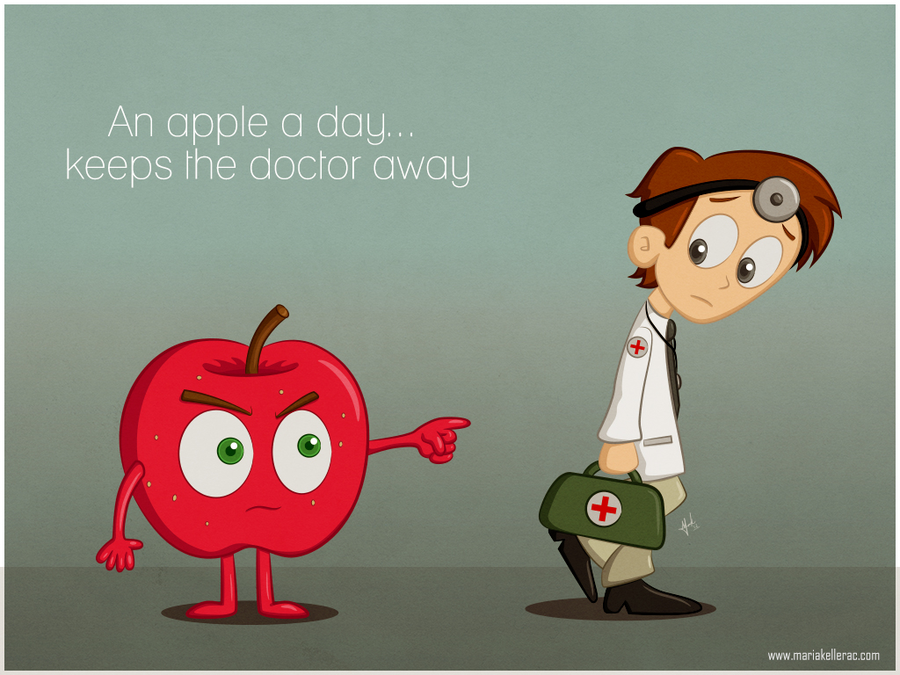Health Proverbs: Where Did They Come From?
If nothing else, doctors are a bit concrete. We love boxes, categories, lists and most of all… answers!
So, things a bit askew, catawampus, off kilter or out of place make the average physician a bit nauseous if not outright wonky and catapulted into a search for the rationale. You give us an aphorism and we’ll design a research study.
Eat something, you’ll feel better
Health Proverbs
Any truth to them?
Such is the case with the Health Proverbs we’ve heard so often that we almost accept without a single doubt. Let’s list a few so you can see what I’m going on about.
Cold Hands, Warm Heart

There was a collection of English proverbs published in 1903 which seems to be the beginning of the proverb: “Cold Hands, Warm Heart”; although, obviously it had to be in common usage much prior to then.
Whether it was merely a justification given when a man commented on his wife’s cold hands or an aphorism with roots inside some now-unknown medical condition is not known; but, the idea is that a person’s core temperature (i.e. around the heart) is inversely related to the temperature of their hands. Can that be true?
The thermogram shown reveals that, ON AVERAGE, a woman’s hand is cooler than a man’s hand by almost 3 degrees. I said ON AVERAGE. But, there seems to be no known similar relationship, inverse or otherwise, to core temperatures. In fact, one study DID find that women had lower hand temperatures AND lower core temperatures; exactly the opposite of the proverb.
Another, somewhat odd study found that holding a warm container seemed to induce feelings of generosity… a “warm heart?”
However, you’ve got to mention that as ANYONE starts to freeze their peripheral circulation is sacrificed in order to keep their core warm—that is until they actually freeze. So, in that case and for those limited moments the proverb might be true.
Findings: Limited evidence to support the “cold hands, warm heart” proverb. In fact, just the opposite. 
Feed a Cold, Starve a Fever

The internet is full of cartoons and jokes about the “feed a cold, starve a fever” aphorism and how people can’t remember which it is. The punchlines usually involve either chocolate, menopause or PMS.
Scholars who like to do such things can only trace this statement back to the 16th century where someone implied that ill people who had upper respiratory infections (colds) should still eat well but those who had diseases with a fever should eat less well. The choice of words used to make the saying rhyme however eventually was taken literally to mean “starve” and include drinking water as well—which is bizarre.
Back with Hippocrates, before they even had a clue about the causes of ANY illness, it was thought best to withhold food to a person who has fever. But, there is absolutely no writings available to give us a clue about their reasonings behind the practice.
Actually, we now know absolutely that fever increases metabolic rate so withholding calories just seems the wrong thing to do. Some diseases do themselves decrease appetite and/or even make the patient throw up etc.. But, those diseases have nothing to do with fever. Both viruses and bacteria can give the same symptoms.
And what about chicken soup? Well, fever increases the loss of bodily moisture; so, soup is a great thing to do—if the patient can keep it down. The moisture helps the mucous membranes stay moist and the salt (usually found in chicken soup) replaces that lost in vomiting or diarrhea.
SO, what this means is that: this saying is proved wrong in all kinds of ways! And, like I said, whoever started it isn’t here to defend themselves about why they started such an (what seems to us now days) odd-ball treatment. 
For any illness: use antipyretics when necessary and let the patient’s symptoms and disease suggest what and how much food is appropriate—even if it’s ice cream—and liquids enough to keep them urinating and their urine light yellow to clear. And, chicken soup is good not only for the soul.
Smoking Cigarettes Will Stunt Your Growth

The “Smoking Cigarettes Will Stunt Your Growth” aphorism is more than just wishful thinking on the parts of parents and not at all in the same category as “you keep making faces and it’ll grow like that.”
Remember, the tobacco industry was (STILL IS) in it for the huge profits they’ve always been accustomed to, to hell with you or your children’s health! In years past, before even a smidgen of sense toward children’s health, the smoking-party in the photo was ubiquitous. On the streets, in homes—everywhere.
The warning “smoking will stunt your growth” was literally an observable phenomenon everywhere.
We know now just how damaging maternal smoking is on a fetus and leads not only to reduced neonatal height and weight but to neurological findings as well.
And we can’t even merely say that effects of smoking around the child after birth is “uncertain”; because, it certainly is NOT. We know definitively the damaging effects of second-hand smoke.
One of the earliest studies done on the subject many, many years ago showed smoking was strongly associated with reduced height in adolescent males (but not females – study done before females smoked).
The available evidence does support this aphorism; so, it is 
Drink Eight Glasses of Water Daily

This “eight glasses of water a day” thing may be a case of a good idea getting way out of hand.
The historians really can’t determine where or how this seeming aphorism came into existence; but, even many in the medical community parrot this to patients still today.
The Food and Nutrition Board advised consuming about 2.5 quarts of water per day back in 1945. But here’s the thing: many people picked up on the advice and interpreted that to mean that humans should consume 8 large glasses of water per day without even considering that most of that amount would be consumed naturally in an ordinary diet each day.
Even though I’ve heard nurses and dietitians give the advice repeatedly, that always just seemed like an inordinate amount for a person to imbibe and they’d have to be sipping on water almost continually through the day.
In kids we’re very conscious about fluid intake and watch it carefully because giving TOO MUCH fluids is a serious thing. It’s called water intoxication and can cause brain swelling. And when I’ve tried the advice, I not only couldn’t do it because of sheer logistical and time reasons but I felt bloated and not at all thirsty for one more drop.
So, here’s what we do know: a huge study with long term follow-up showed NO EVIDENCE that linked higher fluid consumption and either heart or stroke mortality—either up or down. 
Also, There is mixed evidence for the beneficial effect of water consumption on weight loss. To use an expression in an article I’ve read this aphorism doesn’t hold water.
An Apple a Day Keeps the Doctor Away

“An apple a day keeps the doctor away,” who knows where this aphorism started? It’s published widely without credit and publications go way, way back—at least to the mid-19th century.
At least in my case the aphorism is simply bogus. I love apples. All kind of apples. Promise me an apple and I’d even make a housecall!
It could’ve read “an orange a day keeps the doctor (scurvy) away” in the time of ancient mariners and their long sea voyages.
Be that as it may, there is truly no other relationship that has been more studied, more researched, more written about than: the link between diet and health.
And despite all that, still, the “smoking gun” link between most dietary risk factors remain tenuous—even when statistics say they are “plausible.” EXCEPT FOR ONE: fruits and vegetables!
The more than 100,000 published reports on everything under the sun don’t stack up to the fact that consuming several portions of fruits and vegetables daily, accompanied by limited consumption of animal-based protein (eg, something like the so-called Mediterranean diet) may have health benefits.
Apples, of course, fit that category; so, with the listed caveat, it’s confirmed. 
4 Posts in Proverbs (proverbs) Series
- sleep and health – 18 Feb 2019
- Seasons, patient learning, remedies, eating and health checks – 1 Dec 2018
- Heart, fever, smoking, water and apples – 6 Oct 2018
- Proverbs Series: Intro/Index – 1 Oct 2018
Advertisement by Google
(sorry, only few pages have ads)

